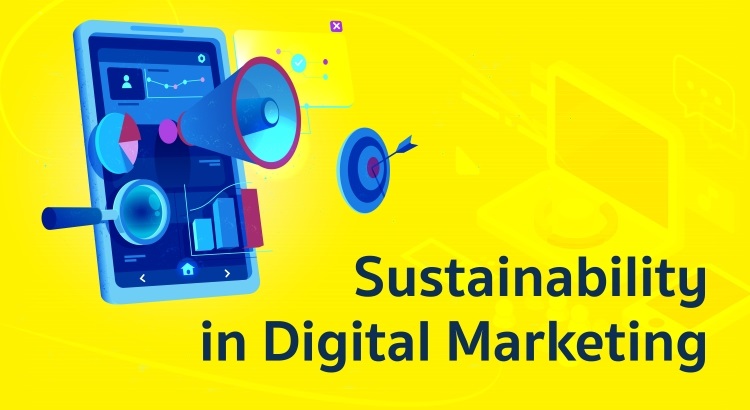Digital marketing drives sustainability by building trust in eco-friendly choices. Brands use social media and data to promote responsible behaviors.

Digital marketing is at the forefront of the shift toward sustainability. In particular, it uses various strategies to build consumer trust in sustainable initiatives. Moreover, these strategies educate consumers on environmental and ethical choices, ultimately guiding them toward more responsible production and consumption. Notably, sustainable marketing is a key approach within digital marketing, as it addresses environmental, social, and economic issues. Through channels like social media, data analytics, and storytelling, brands make sustainability a core part of their identity. Consequently, this approach inspires positive consumer behaviors.
What is sustainable marketing and why does it matter?
To understand how sustainable marketing can truly promote sustainable practices, it’s helpful to first clarify what this concept entails.
Sustainable marketing is a broad concept. On the one hand, it includes green marketing, which focuses on environmental awareness and protection. On the other hand, it also extends to practices addressing concerns beyond the environment, such as social and economic issues. In fact, sustainable marketing guides businesses, brands, and society toward a more sustainable future. It raises awareness, inspires change, and encourages choices that positively impact the economy, culture, and long-term well-being. While eco-friendly brands are often the first to focus on sustainable marketing, brands without a strong sustainability foundation can also adopt these principles. Indeed, the goal is to promote a mission or purpose rather than simply a product or service.
Recent studies show that consumers of all ages value sustainability. Thus, even for brands where sustainability isn’t the central mission, investing in sustainable practices can attract customers and build loyalty. Therefore, every company should invest in sustainable activities. Not only does it benefit society, but it also provides a competitive advantage. If more companies integrate sustainability, it can positively influence consumer behaviors. In response to this growing interest, sustainable marketing proves to be effective, as it directly communicates and strengthens a brand’s commitment to sustainability, influencing consumer perceptions and promoting responsible consumption.
Connecting digital strategies with sustainable impact
Having established the power of sustainable marketing, let’s explore how digital marketing can amplify its impact. For instance, digital marketing offers powerful platforms—like social media, data analytics, and storytelling—for promoting sustainable initiatives. Social media allows brands to reach a wide audience, spreading awareness quickly. Meanwhile, data analytics helps track consumer engagement and preferences, tailoring messages to maximize impact. Additionally, storytelling builds emotional connections with consumers by showcasing a brand’s journey toward sustainability, which fosters deeper loyalty. All these channels enable brands to connect with broad audiences through targeted, engaging messaging. By building credibility and trust, they connect with consumers who prioritize responsible practices.
As digital marketing continues to evolve, businesses have new opportunities to make sustainability a visible, core part of their brand identity. By aligning with sustainable values, brands can foster loyalty and attract consumers increasingly drawn to companies that reflect their values. Furthermore, data analytics plays a vital role here. It allows brands to tailor their messages to specific audience segments and track engagement for greater impact. For example, Unilever uses analytics to understand how consumers respond to its various sustainable initiatives. This enables the company to refine its approach and deepen customer connections.
The future of sustainability: merging digital and sustainable marketing
In summary, digital marketing is essential for supporting sustainable practices by making sustainability visible, engaging consumers, and inspiring concrete actions. When used thoughtfully, digital strategies strengthen brand reputation while also driving sustainable consumer behaviors and industry-wide shifts toward responsibility. Through sustainable marketing and digital transformation, businesses can be a force for positive change. They benefit society, the environment, and the economy alike. By combining digital and sustainable transformation, companies secure a roadmap to long-term success and resilience in the sustainability era.
Bretous, M. (2024, 14 octobre). Sustainable Marketing : Key Principles & How to Leverage It [+ Examples]. HubSpot. https://blog.hubspot.com/marketing/sustainable-marketing
How digital drives sustainability. (s. d.). Forbes Ignite. https://sustainabletransformation.forbesignite.com/articles/how-digital-drives-sustainability
Thompson, C. (2023, 27 juillet). What is Sustainable Marketing ? Cambridge Institute For Sustainability Leadership (CISL). https://www.cisl.cam.ac.uk/resources/blog/what-sustainable-marketing
